The struggle to survive as a refugee
A UNHCR report explained how Europe is living through a maritime refugee crisis of historic proportions.
UNHCR, Protestante Digital · GENEVA · 03 JULY 2015 · 18:20 CET
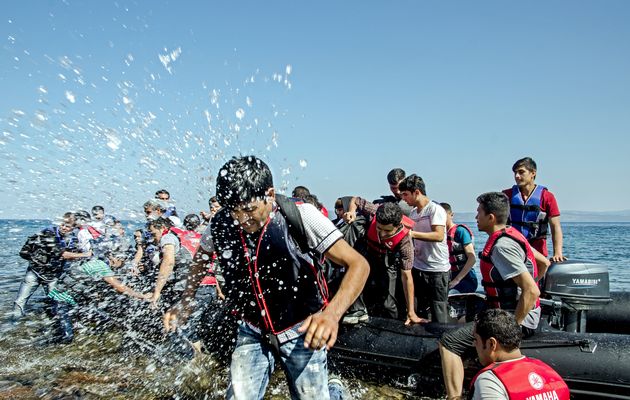
The first six months of 2015, have been especially difficult for those who have left their countries, looking for a better life. Many have died trying to reach a new land, and the Mediterranean has become a witness of many rescues, not all of them with a happy ending.
Those who survived have to start a new life in a foreign country, and Europe is one of the main destinations of these new refugees, and the EU has decided to take action about it.
MEDITERRANEAN CRISIS, A REFUGEE CRISIS
According to a UNHCR report released this week, the large majority of the 137,000 people who crossed the Mediterranean Sea into Europe during the first six months of 2015, were fleeing from war, conflict or persecution, making the Mediterranean crisis primarily a refugee crisis.
“As Europe debates the best way to deal with the rising crisis on the Mediterranean, we must be clear: most of the people arriving by sea in Europe are refugees, seeking protection from war and persecution,” said António Guterres, UN High Commissioner for Refugees.
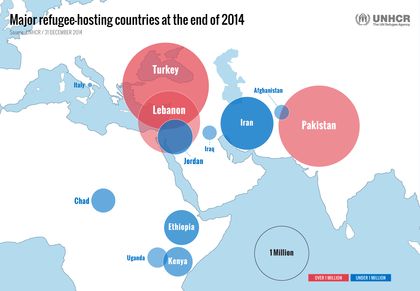
One third of the men, women and children who arrived by sea in Italy or Greece were from Syria, whose nationals are almost universally deemed to qualify for refugee status or other forms of protection.
The second and third most common countries of origin are Afghanistan and Eritrea, whose nationals are also mostly considered to qualify for refugee status.
THE REALITY OF BEING A REFUGEE
Data received from Greece, Italy, Malta and Spain charts an 83 per cent increase in refugees and migrants crossing the Mediterranean from January to June – 137,000 compared to 75,000 in the same period last year.
The number of deaths at sea rose to record levels in April 2015, and then dropped dramatically in May and June. Between January and March, 479 refugees and migrants drowned or went missing, as opposed to 15 during the first three months of the year before.
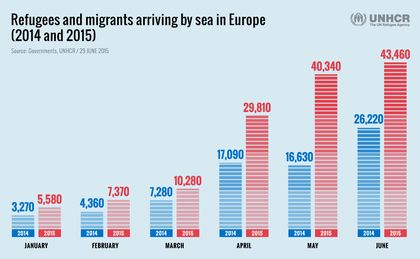
In April the situation took an even more terrible turn. In a number of concurrent wrecks, an unprecedented 1,308 refugees and migrants drowned or went missing in a single month (compared to 42 in April 2014).
In May, the number of refugees and migrants drowned or missing at sea fell to 68, and the downward trend continued in June, which saw 12 deaths compared to 305 in 2014.
“The decline in people drowning over the past two months is encouraging; a sign that with the right policy, backed by an effective operational response, it is possible to save more lives at sea,” said Guterres.
“Nonetheless, we must stay vigilant. For the thousands of refugees and migrants who continue to cross the Mediterranean every week, the risks remain very real”, he added.
The report shows that the eastern Mediterranean route from Turkey into Greece has now surpassed the central Mediterranean route (from North Africa to Italy) as the main source of maritime arrivals.
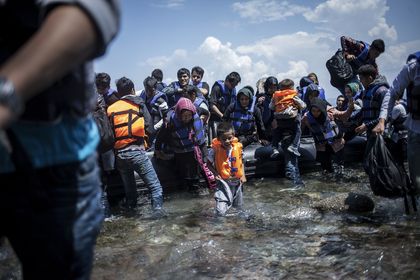
REFUGEE-HOSTING COUNTRIES´ PROBLEMS
After years of rising pressure and insufficient international support, the economies and infrastructure of many refugee-hosting countries are struggling to cope, making it increasingly difficult for refugees to find work, shelter, healthcare, and education. As humanitarian appeals to assist them go underfunded, many have no choice but to move on.
“Europe has a clear responsibility to help those seeking protection from war and persecution,” stated Guterres. “To deny that responsibility is to threaten the very building blocks of the humanitarian system Europe worked so hard to build. European countries must shoulder their fair share in responding to the refugee crisis, at home and abroad”, he concluded.
A CHRISTIAN RESPONSE
Evangelical Christians from many different European countries, have voiced their opinion on the Mediterranean crisis:
Thomas Albinson, ambassador for Refugees, Displaced and Stateless People of the World Evangelical Alliance (WEA), wrote an article in Evangelical focus, explaining the biblical importance of helping the refugees:
“Because the refugee narrative flows from cover to cover through the Bible, we can see that God is often powerfully at work in and through the lives of forcibly displaced people”, he stated.
“It is this truth that can help us not become overwhelmed and paralyzed in the face of this present crisis. We need to assume that God is at work along the Refugee Highway. And we need to make ourselves available to God, should he call us to join him”, he added.
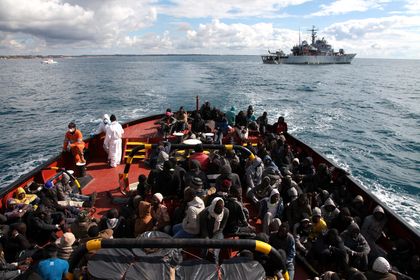
Italian pastor and writer Leonardo de Chirico, also wrote an article, emphasising that Evangelicals should contribute the solution of this problem on a humanitarian, political and spiritual level.
“There are those whose interest is stirred by humanitarian reasons but they don't want to approach the issue globally. Others see only opportunities to evangelise but their approach is spiritualistic and inadequate”, he warned, but “we need an integrated, holistic, evangelical reflection and action.”
You can read the full report here.
Published in: Evangelical Focus - life & tech - The struggle to survive as a refugee
